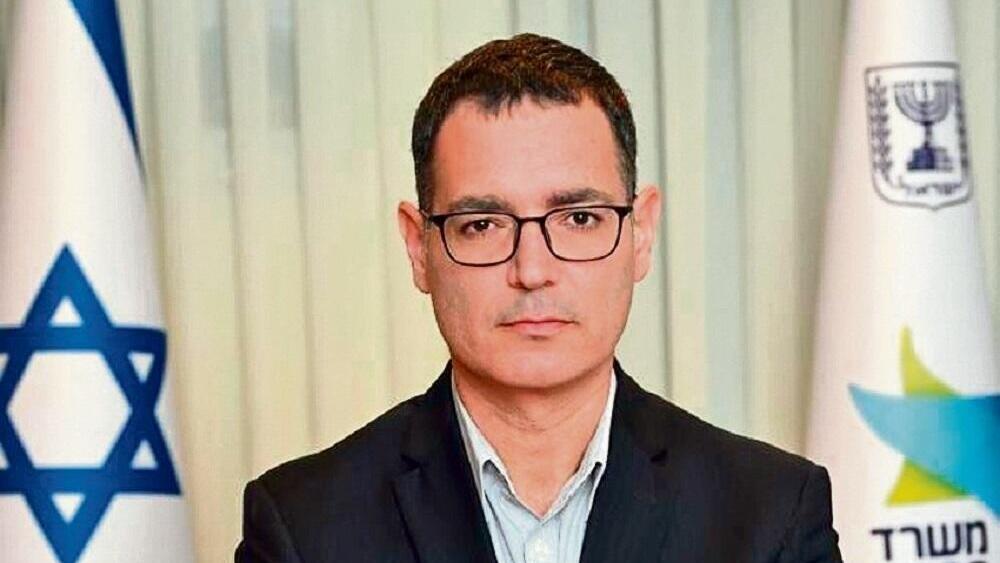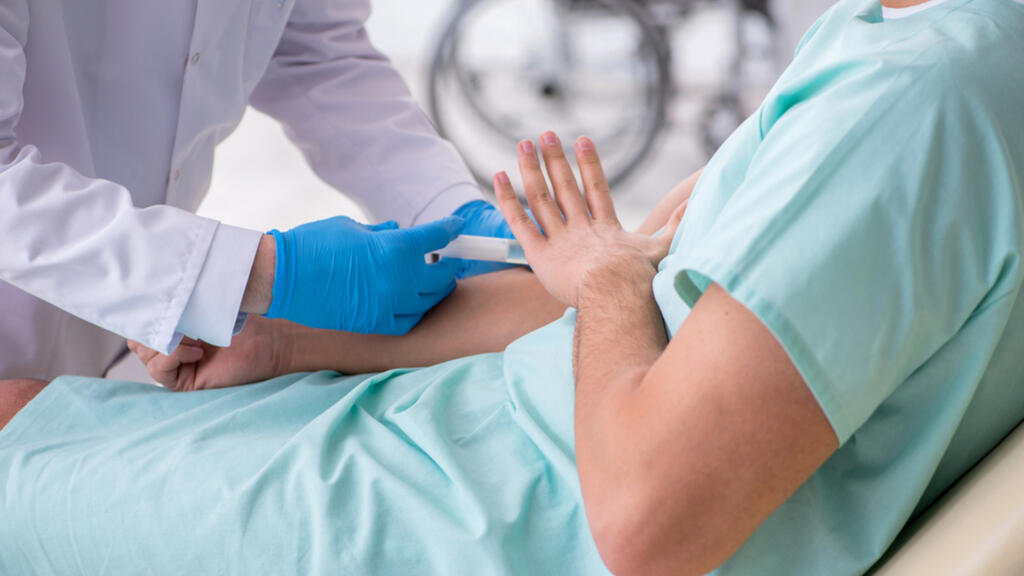Dozens of captives to be released as part of the hostage release deal between Israel and Hamas will be admitted to separate medical facilities in six hospitals. The Health Ministry emphasized guidelines to hospitals on Wednesday, instructing, among other things, to block access to these facilities and prioritize the treatment of female doctors in them.
More stories:
Director-General, Moshe Bar Siman Tov, clarified in a press conference that captives in need of urgent medical treatment would be transferred to Soroka Medical Center in Be’er Shevaa. The rest will be dispersed according to instructions from the ministry’s Head of General Medicine Division, Dr. Hagar Mizrachi.
"It is important that it is an absolute sterile environment. They’ll arrive to an isolated facilities, with family members and care staff as needed. visitors will be allowed to enter these facilities, based on the wishes of the captives and their families, and the guidance of the medical team in order to provide the best treatment," said Bar Siman Tov.
The guidelines distributed to hospital administrators by Dr. Mazrahi, state that "the facility will be off limits to visitors and healthcare workers, except for the captives’ families and security personnel accompanying them, as well as medical personnel treating them."
In a press conference, Dr. Mazrahi explained, "We can’t say how many captives will arrive on each of the days and to what extent to prepare beyond what is covered in the media. The first principle will be medical needs. Immediate medical treatment will be provided at the nearest hospital, Soroka Medical Center.”
“Patients who can be accommodated in more distant locations will be transferred based on the following principles: the wishes of the family - if there's a child or two siblings, we will, of course, bring them together. We will assess the captives on-site. We won’t separate them. Anyone who arrives has this connection, and we won’t cause additional distress."
"In many cases, we’re dealing with individuals coming from a specific community, and we see the importance of preserving that connection as much as possible. We’re somewhat more concerned about the implications of prolonged captivity and the refeeding syndrome, considering the fact they’ve been away for long, and perhaps didn’t receive proper nutrition – we’ve asked hospitals to prepare for this case in terms of the medical team’s sensitivity in receiving the captives," she added.
Regarding suspicions of sexual abuse or harassment during the period of captivity, hospitals have been instructed to "conduct a delicate and fitting inquiry as to the medical and mental condition of the captive and to avoid aggressive questioning, enabling choice and control over the conversation.”
“The inquiry should be conducted in maximum privacy. It’s important to give full control to the captives in the process and to act only according to their wishes, including taking an anamnesis (medical questioning), physical examination, and documenting findings verbally or otherwise. In addition, for precise and professional treatment in such a sensitive matter, it is necessary to involve professional staff as soon as possible and use a list of staff that was provided to the hospital administrator."
One of the hospitals expected to admit the captives is Wolfson Hospital in Holon, where one of the central acute care rooms is active. As part of the treatment and in case of suspicion, women may also be offered a pregnancy test - but it should be emphasized that under no circumstances should any woman be obligated to undergo such a test unless she requests it.
In general, hospitals have been instructed to handle women returning from captivity with the utmost sensitivity, especially those who are suspected of having experienced sexual assault.
A series of initial tests
The released captives will undergo an initial examination immediately upon arrival at the hospital to rule out any medical condition requiring immediate intervention. "The examination will be carried out, as much as possible, accompanied by at least one family member or someone representing the examinee, at their discretion and consent.”
“The captives will be examined by a nurse and an emergency medicine specialist, and in the case of children, by a pediatric emergency medicine specialist. In the case of women, preference will be given to a female doctor and nurse.”
“Based on the captive’s medical history and physical examination, the doctor will decide on the need for laboratory tests, imaging, or consultation, necessary at this stage to rule out a condition requiring immediate intervention, even before meeting with family members. In general, it should be considered to conduct a panel of tests for a wide range of infectious diseases for all returning captives.”
"If the relevant medical tests raise suspicion of prolonged malnutrition, appropriate tests should be performed, and the captive should be guided toward a personalized nutrition plan. Geriatric intervention, dental and oral health, optometry, and counseling services should be considered as needed.”
“If it’s necessary to take the captive outside of the medical facility, family accompaniment or someone of their choice can be arranged to accompany them. Supplementary testing will be done after meeting with family members and in coordination with accompanying security personnel, in which further medical investigations will be conducted based on the initial findings."
Hospitals have been instructed to allow treatment for each of the captives in a personal room with family members or escorts. However, in appropriate cases, consideration should be given to allow treating two captives in the same room.
"The captives’ families should be given food, but careful consideration should be given to the captives' nutrition. Refer to the nutritional guidelines for dietitians, doctors, and nurses for treating refeeding syndrome among the captives."
The captives’ personal medical information has been transferred to the hospitals. The teams have been instructed to pay close attention and look into this information in order to understand the medical issues thoroughly, including the implications of prolonged prevention of treatment or the emergence of complications due to the absence of proper medical care. "Depending on the case, professional opinions from senior experts should be obtained when making decisions for treatment."
Providing any lacks
A social worker will accompany the captives’ treatment process as soon as possible and engage in a conversation with the captives and their family to gain an understanding of their mental distress. They’ll will recommend additional psychological intervention by a psychiatrist or psychologist as needed.
Additionally, during the conversation, the patient, along with the social worker, will determine a key person that will enable them to communicate in the future. Each released captive will receive a list of contacts and relevant support lines for their future treatment.
After completing the assessment in the hospitals, a decision will be made regarding the need for further hospitalization or for release and follow-up appointments in their local communities. "Considering the situation that, in some cases, led to the removal of support factors (community, family), it’s recommended to discuss with the family if they wish to stay in the hospital for additional time in order to ready themselves.”
“It should be noted that medical care after release will be delayed, and efforts should be made to provide patients with medications or relevant prescriptions after their release. In addition, the captives may lack basic supplies such as clothing, eyeglasses, and hearing aids. Family members should be assisted as much as possible in addressing these lacks to ensure a safe and comfortable release."
Hospital social workers have been instructed to contact the health maintenance organization where the captives are insured, update them on their personal information, provide their medical information to maintain a steady treatment, and relay the contact details of the captives' family members and other ways to communicate with them.








